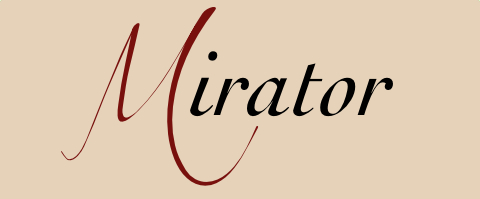CFP: Dis/ability in the medieval Nordic world
CFP: Dis/ability in the medieval Nordic world
A special issue of Mirator
Editors: Anna Katharina Heiniger and Christopher Crocker
The special issue emerges from the interdisciplinary research project Disability before disability (Icel. Fötlun fyrir tíma fötlunar) situated at the Centre for Disability Studies at the University of Iceland, initiated in 2017, and supported by the Icelandic Research fund (Icel. Rannsóknasjóður) Grant of Excellence No 173655-05.
Recent years have seen growing interest in the exploration of disability in premodern societies and cultures. In line with the now commonly accepted (working) premise that disability is a multi-factorial phenomenon, scholars have come to realise that there can be no fixed, atemporal or acultural definition of disability. Thus, in order to consider whether and how premodern societies may have conceptualized disability, scholars must shed presentist preconceptions, cast a wide net, and be prepared to read between the lines. Equipped with an understanding of disability as a tool of socio-cultural analysis, scholars today commonly make use of the concepts of ‘embodied difference’ and ‘marked or unusual bodies’ to yield more fruitful results as they do not imply pre-defined notions of disability. Although the body becomes a central platform on whose basis disability is negotiated, scholars are in no way limited to speaking only of the physicality of bodies. Rather the body is understood as a medium which materialises and translates physical, psychic, and intellectual differences in a way that societies can identify them as deviations from what is considered ‘normal’ in specific historical and socio-cultural contexts. Indeed, the phenomenon of disability cannot be studied without the contrast of what a culture or society conceptualizes as ‘ability’ and identifies as ‘normal’.
The term 'dis/ability’ can be used to express this inherent relationship and to remind us that it is not possible to understand one without recognizing the other. Within this theoretical context, we invite proposals for essays (c. 7000 words) for a special issue of the journal Mirator that seeks to expand upon growing interest of dis/ability in the context of the medieval Nordic world. Contributors to the special issue will explore dis/ability with in the context of different social arrangements and cultural conventions in the medieval Nordic world. We will especially welcome contributions that focus on close reading of specific texts (historical, legal, literary, etc.) as well as suggestions for broad, methodological approaches towards the study of dis/ability in the medieval Nordic world.
Contributors will be encouraged, where possible, to expand the scope of their research to include related aspects from the fields of cultural studies, social theory, history, art, etc. In the context of the medieval Nordic world, possible topics include, but are not limited to:
▪Approaches to the experience of dis/ability (i.e. sources, methodology)
▪Dis/ability and society
▪Religion and dis/ability
▪Dis/ability and medical knowledge
▪Intersections of dis/ability with age, gender, social status, etc.
▪Dis/ability and the law
▪Narrating experiences and perceptions of dis/ability
▪Dis/ability, assistive technology, and care
▪Terminology or language of dis/ability
Contributions dealing with geographic regions in the medieval Nordic world, including Denmark, Finland, Iceland, Norway, and/or Sweden, are welcome. We hope to represent all of these regions in the special issue and are particularly eager to field proposals dealing with Danish and Finnish material.
Please send one-page essay proposals accompanied by brief author bio (c. 100 words) to annakh@hi.is by June 1, 2019. In order to achieve an expeditious production timeline, essay drafts will be due in January 2020. Please feel free to contact us with any questions or concerns you might have in the meantime.





